Equal Employment Opportunity Commission on:
[Wikipedia]
[Google]
[Amazon]
The U.S. Equal Employment Opportunity Commission (EEOC) is a federal agency that was established via the
59
�� However, the EEOC at first ignored sex discrimination complaints, and the prohibition against sex discrimination in employment went unenforced for the next few years.{{cite book, last=Friedman, first=Barry, author-link=Barry E. Friedman, date=September 29, 2009, title=The Will of the People: How Public Opinion Has Influenced the Supreme Court and Shaped the Meaning of the Constitution, url=https://archive.org/details/willofpeoplehowp0000frie, url-access=registration, pag
290
publisher= Farrar, Straus and Giroux, access-date=June 29, 2011, isbn=9780374220341 One EEOC director called the prohibition "a fluke... conceived out of wedlock."
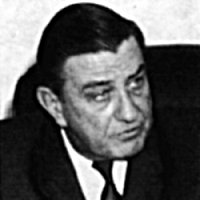 , May 26, 1965
, May 11, 1966
,
, rowspan="4" , Lyndon Johnson
, - style="background:#def;"
, 2
, Stephen N. Shulman
,
, May 26, 1965
, May 11, 1966
,
, rowspan="4" , Lyndon Johnson
, - style="background:#def;"
, 2
, Stephen N. Shulman
, 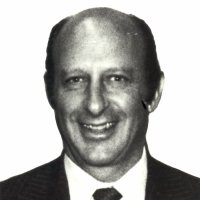 , September 14, 1966
, July 1, 1967
,
, - style="background:#def;"
, rowspan="3" , 3
, rowspan="3" , Clifford Alexander Jr.
, rowspan="3" ,
, September 14, 1966
, July 1, 1967
,
, - style="background:#def;"
, rowspan="3" , 3
, rowspan="3" , Clifford Alexander Jr.
, rowspan="3" ,  , style="border-bottom-style: none;" rowspan="2" , August 4, 1967
, style="border-bottom-style: none;" rowspan="2" ,
, style="border-bottom-style: none;" , {{zwsp
, - style="background:#def;"
, style="border-style: none solid;" , {{zwsp
, - style="background:#ffe1e1"
, style="border-top-style: none;" , {{zwsp
, style="border-top-style: none;" , May 1, 1969
, style="border-top-style: none;" ,
, rowspan="3" ,
, style="border-bottom-style: none;" rowspan="2" , August 4, 1967
, style="border-bottom-style: none;" rowspan="2" ,
, style="border-bottom-style: none;" , {{zwsp
, - style="background:#def;"
, style="border-style: none solid;" , {{zwsp
, - style="background:#ffe1e1"
, style="border-top-style: none;" , {{zwsp
, style="border-top-style: none;" , May 1, 1969
, style="border-top-style: none;" ,
, rowspan="3" , 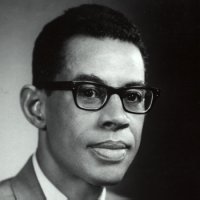 , May 5, 1969
, December 23, 1973
,
, - style="background:#ffe1e1"
, rowspan="2" , 5
, rowspan="2" , John H. Powell Jr.
, rowspan="2" ,
, May 5, 1969
, December 23, 1973
,
, - style="background:#ffe1e1"
, rowspan="2" , 5
, rowspan="2" , John H. Powell Jr.
, rowspan="2" , 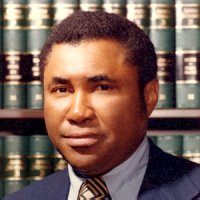 , December 28, 1973
, August 8, 1974
,
, - style="background:#ffe1e1"
, August 8, 1974
, March 18, 1975
,
, rowspan="4" ,
, December 28, 1973
, August 8, 1974
,
, - style="background:#ffe1e1"
, August 8, 1974
, March 18, 1975
,
, rowspan="4" , 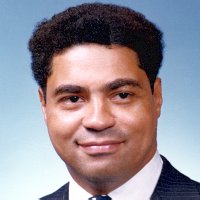 , May 27, 1975
, May 15, 1976
,
, - style="background:#E6E6AA"
, rowspan="2" , Acting
, rowspan="2" , Ethel Bent Walsh
, rowspan="2" ,
, style="border-bottom-style: none;" , May 15, 1976
, style="border-bottom-style: none;" , {{zwsp
, style="border-bottom-style: none;" ,
, - style="background:#E6E6AA"
, style="border-top-style: none;" , {{zwsp
, style="border-top-style: none;" , May 27, 1977
, style="border-top-style: none;" ,
, rowspan="3" style="background:#def;" ,
, May 27, 1975
, May 15, 1976
,
, - style="background:#E6E6AA"
, rowspan="2" , Acting
, rowspan="2" , Ethel Bent Walsh
, rowspan="2" ,
, style="border-bottom-style: none;" , May 15, 1976
, style="border-bottom-style: none;" , {{zwsp
, style="border-bottom-style: none;" ,
, - style="background:#E6E6AA"
, style="border-top-style: none;" , {{zwsp
, style="border-top-style: none;" , May 27, 1977
, style="border-top-style: none;" ,
, rowspan="3" style="background:#def;" , 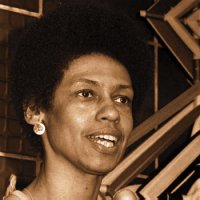 , style="border-bottom-style: none;" rowspan="2" , May 27, 1977
, style="border-bottom-style: none;" , {{zwsp
, style="border-bottom-style: none;" ,
, - style="background:#def;"
, style="border-style: none solid;" , {{zwsp
, style="border-style: none solid;" ,
, - style="background:#ffe1e1"
, style="border-top-style: none;" , {{zwsp
, style="border-top-style: none;" , February 21, 1981
, style="border-top-style: none;" ,
, rowspan="4" ,
, style="border-bottom-style: none;" rowspan="2" , May 27, 1977
, style="border-bottom-style: none;" , {{zwsp
, style="border-bottom-style: none;" ,
, - style="background:#def;"
, style="border-style: none solid;" , {{zwsp
, style="border-style: none solid;" ,
, - style="background:#ffe1e1"
, style="border-top-style: none;" , {{zwsp
, style="border-top-style: none;" , February 21, 1981
, style="border-top-style: none;" ,
, rowspan="4" , 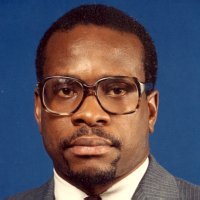 , style="border-bottom-style: none;" rowspan="2" , May 6, 1982
, style="border-bottom-style: none;" , {{zwsp
, style="border-bottom-style: none;" ,
, - style="background:#ffe1e1"
, style="border-style: none solid;" , {{zwsp
, style="border-style: none solid;" ,
, - style="background:#ffe1e1"
, style="border-top-style: none;" , {{zwsp
, style="border-top-style: none;" , March 8, 1990
, style="border-top-style: none;" ,
, rowspan="3" ,
, style="border-bottom-style: none;" rowspan="2" , May 6, 1982
, style="border-bottom-style: none;" , {{zwsp
, style="border-bottom-style: none;" ,
, - style="background:#ffe1e1"
, style="border-style: none solid;" , {{zwsp
, style="border-style: none solid;" ,
, - style="background:#ffe1e1"
, style="border-top-style: none;" , {{zwsp
, style="border-top-style: none;" , March 8, 1990
, style="border-top-style: none;" ,
, rowspan="3" ,  , style="border-bottom-style: none;" rowspan="2" , March 8, 1990
, style="border-bottom-style: none;" , {{zwsp
, style="border-bottom-style: none;" ,
, - style="background:#ffe1e1"
, style="border-style: none solid;" , {{zwsp
, style="border-style: none solid;" ,
, - style="background:#def;"
, style="border-top-style: none;" , {{zwsp
, style="border-top-style: none;" , April 2, 1993
, style="border-top-style: none;" ,
, rowspan="5" ,
, style="border-bottom-style: none;" rowspan="2" , March 8, 1990
, style="border-bottom-style: none;" , {{zwsp
, style="border-bottom-style: none;" ,
, - style="background:#ffe1e1"
, style="border-style: none solid;" , {{zwsp
, style="border-style: none solid;" ,
, - style="background:#def;"
, style="border-top-style: none;" , {{zwsp
, style="border-top-style: none;" , April 2, 1993
, style="border-top-style: none;" ,
, rowspan="5" ,  , September 29, 1994
, December 31, 1997
,
, - style="background:#E6E6AA"
, Acting
, Paul Igasaki
,
, September 29, 1994
, December 31, 1997
,
, - style="background:#E6E6AA"
, Acting
, Paul Igasaki
,  , January 1, 1998
, October 23, 1998
,
, - style="background:#def;"
, rowspan="2" , 11
, rowspan="2" , Ida L. Castro
, rowspan="2" ,
, January 1, 1998
, October 23, 1998
,
, - style="background:#def;"
, rowspan="2" , 11
, rowspan="2" , Ida L. Castro
, rowspan="2" , 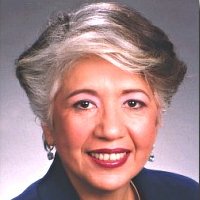 , style="border-bottom-style: none;" , October 23, 1998
, style="border-bottom-style: none;" , {{zwsp
, style="border-bottom-style: none;" ,
, - style="background:#ffe1e1"
, style="border-top-style: none;" , {{zwsp
, style="border-top-style: none;" , August 13, 2001
, style="border-top-style: none;" ,
, rowspan="3" ,
, style="border-bottom-style: none;" , October 23, 1998
, style="border-bottom-style: none;" , {{zwsp
, style="border-bottom-style: none;" ,
, - style="background:#ffe1e1"
, style="border-top-style: none;" , {{zwsp
, style="border-top-style: none;" , August 13, 2001
, style="border-top-style: none;" ,
, rowspan="3" ,  , August 6, 2001
, August 31, 2006
,
, - style="background:#ffe1e1"
, 13
, Naomi C. Earp
,
, August 6, 2001
, August 31, 2006
,
, - style="background:#ffe1e1"
, 13
, Naomi C. Earp
,  , September 1, 2006
, January 20, 2009
,
, - style="background:#E6E6AA"
, Acting
, Stuart J. Ishimaru
,
, September 1, 2006
, January 20, 2009
,
, - style="background:#E6E6AA"
, Acting
, Stuart J. Ishimaru
,  , January 20, 2009
, April 7, 2010
,
, rowspan="3" style="background:#def;" ,
, January 20, 2009
, April 7, 2010
,
, rowspan="3" style="background:#def;" ,  , April 7, 2010
, September 2, 2014
, {{cite web, url=https://obamawhitehouse.archives.gov/the_press_office/President-Obama-Announces-Pick-to-Head-Equal-Employment-Opportunity-Commission/, title=President Obama Announces Pick to Head Equal Employment Opportunity Commission, author=Press Office, via=
, April 7, 2010
, September 2, 2014
, {{cite web, url=https://obamawhitehouse.archives.gov/the_press_office/President-Obama-Announces-Pick-to-Head-Equal-Employment-Opportunity-Commission/, title=President Obama Announces Pick to Head Equal Employment Opportunity Commission, author=Press Office, via= , September 2, 2014
, January 25, 2017
,
, - style="background:#E6E6AA"
, Acting
, Victoria Lipnic
,
, January 25, 2017
, May 15, 2019
,
, rowspan="2" style="background:#ffe1e1" ,
, September 2, 2014
, January 25, 2017
,
, - style="background:#E6E6AA"
, Acting
, Victoria Lipnic
,
, January 25, 2017
, May 15, 2019
,
, rowspan="2" style="background:#ffe1e1" ,  , January 20, 2021
, January 20, 2025
,
,
, January 20, 2021
, January 20, 2025
,
,  , January 20, 2025
, Present
, {{cite web , url=https://www.eeoc.gov/newsroom/president-appoints-andrea-r-lucas-eeoc-acting-chair , title=President Appoints Andrea R. Lucas EEOC Acting Chair , date=January 21, 2025 , publisher=EEOC
, rowspan="1" style="background:#ffe1e1" , Donald Trump
, January 20, 2025
, Present
, {{cite web , url=https://www.eeoc.gov/newsroom/president-appoints-andrea-r-lucas-eeoc-acting-chair , title=President Appoints Andrea R. Lucas EEOC Acting Chair , date=January 21, 2025 , publisher=EEOC
, rowspan="1" style="background:#ffe1e1" , Donald Trump
Equal Employment Opportunity Commission
in the
Records of the Equal Employment Opportunity Commission
at the
Civil Rights Act of 1964
The Civil Rights Act of 1964 () is a landmark civil rights and United States labor law, labor law in the United States that outlaws discrimination based on Race (human categorization), race, Person of color, color, religion, sex, and nationa ...
to administer and enforce civil rights laws against workplace discrimination. The EEOC investigates discrimination complaints based on an individual's race, color, national origin, religion, sex (including sexual orientation, pregnancy, and gender identity), age, disability, genetic information, and retaliation for participating in a discrimination complaint proceeding and/or opposing a discriminatory practice.
The commission also mediates and settles thousands of discrimination complaints each year prior to their investigation. The EEOC is also empowered to file civil discrimination suits against employers on behalf of alleged victims. The Commission cannot adjudicate claims or impose administrative sanctions. Since 2025, the acting chair of the EEOC is Andrea R. Lucas.
Process and enforcement
Authority
The EEOC has the authority to investigate and prosecute cases against most organizations, includinglabor unions
A trade union (British English) or labor union (American English), often simply referred to as a union, is an organization of workers whose purpose is to maintain or improve the conditions of their employment, such as attaining better wages ...
and employment agencies, employing 15 workers or more, or, in the case of age discrimination, 20 or more workers. The commissioner of the EEOC can issue charges without a complainant, referred to as a "commissioner's charge."{{Cite web, title=Systemic Enforcement at the EEOC {{! U.S. Equal Employment Opportunity Commission, url=https://www.eeoc.gov/systemic-enforcement-eeoc, access-date=2022-01-27, website=EEOC, archive-date=2022-01-28, archive-url=https://web.archive.org/web/20220128053028/https://www.eeoc.gov/systemic-enforcement-eeoc, url-status=live Discrimination complaints can be based on hiring, firing, promotions, harassment, training, wages, and/or benefits, and responsibility covers:
* Title VII of the Civil Rights Act of 1964
* Sections 102 and 103 of the Civil Rights Act of 1991
* Pregnancy Discrimination Act
* Equal Pay Act of 1963
* Title I of the Americans with Disabilities Act of 1990
* Sections 501 and 505 of the Rehabilitation Act of 1973
* Age Discrimination in Employment Act of 1967
* Genetic Information Nondiscrimination Act
* Pregnant Workers Fairness Act
Process
The EEOC investigation is confidential until the charge is filed, when the EEOC has 10 days to notify the employer of the charge.{{Cite web, title=What You Can Expect After You File a Charge {{! U.S. Equal Employment Opportunity Commission, url=https://www.eeoc.gov/what-you-can-expect-after-you-file-charge, access-date=2022-01-27, website=EEOC, archive-date=2022-01-27, archive-url=https://web.archive.org/web/20220127105918/https://www.eeoc.gov/what-you-can-expect-after-you-file-charge, url-status=live Charges may be filed on behalf of someone else to maintain some anonymity, for example, a parent may file a charge on behalf of a minor child.Alternative dispute resolution
Because all federal agencies are required to offer an alternative dispute resolution, the EEOC offersmediation
Mediation is a structured, voluntary process for resolving disputes, facilitated by a neutral third party known as the mediator. It is a structured, interactive process where an independent third party, the mediator, assists disputing parties ...
with external or internal professional mediators as a voluntary alternative to litigation
A lawsuit is a proceeding by one or more parties (the plaintiff or claimant) against one or more parties (the defendant) in a civil court of law. The archaic term "suit in law" is found in only a small number of laws still in effect today. ...
, which typically results in faster resolutions.{{Cite web, title=Mediation {{! U.S. Equal Employment Opportunity Commission, url=https://www.eeoc.gov/mediation, access-date=2022-01-27, website=EEOC, archive-date=2022-01-27, archive-url=https://web.archive.org/web/20220127081340/https://www.eeoc.gov/mediation, url-status=live In the 2020 fiscal year
A fiscal year (also known as a financial year, or sometimes budget year) is used in government accounting, which varies between countries, and for budget purposes. It is also used for financial reporting by businesses and other organizations. La ...
(FY), the EEOC reported more than 6,000 mediations conducted recovering nearly half of the $333.2 million in relief from mediation, conciliation, and settlement.{{Cite web, date=2 April 2021, title=EEOC FY 2020 Statistics: EEOC's Recovery on Behalf of Employees Dramatically Increased, Number of Discrimination Charges at All-Time Low, url=https://www.jdsupra.com/legalnews/eeoc-fy-2020-statistics-eeoc-s-recovery-9089875/, access-date=2022-01-27, website=JDSupra, language=en, archive-date=2022-01-28, archive-url=https://web.archive.org/web/20220128053033/https://www.jdsupra.com/legalnews/eeoc-fy-2020-statistics-eeoc-s-recovery-9089875/, url-status=live Mediation is offered, or can be requested, prior to investigation, or after a finding of discrimination has been issued, during conciliation. If the EEOC does not find merit in the charge, they will not offer, nor allow for a request, for mediation. The average mediation with the EEOC takes three months.
Respondent's position statement and investigation
Employers have 30 days from receipt of a charge to respond to allegations prior to any investigation or mediation offering, or if voluntary mediation was used, but unsuccessful. Charging parties have 20 days to respond to the respondent's position statement. The EEOC may ask the employer for additional information such as witness interviews, an on-site interview, or personnel files and policies. An investigator will determine whether or not there is reasonable cause to determine whether or not discrimination has occurred. In FY 2020, the EEOC found 17.4% of charged cases to have merit. The EEOC says investigations typically take 10 months or longer.Right to sue
A right to sue gives claimants the right to file a lawsuit in federal court. Right-to-sue notices are granted when the agency does not pursue litigation, because the claimant requests the notice after 180 days have elapsed into an investigation; the EEOC finds merit following an investigation, but declines to prosecute; or the agency is unable to determine if there is reasonable cause that the law may have been violated. Charges filed under the Equal Pay Act or Age Discrimination in Employment Act do not require a right to sue. Age discrimination lawsuits may be filed 60 days after the charge has been filed with the EEOC, while lawsuits due to wage discrimination based on sex may be within two years from the last discriminatory paycheck.Litigation
The Office of General Counsel, which is led by an appointee of the president that has been confirmed by theSenate
A senate is a deliberative assembly, often the upper house or chamber of a bicameral legislature. The name comes from the ancient Roman Senate (Latin: ''Senatus''), so-called as an assembly of the senior (Latin: ''senex'' meaning "the el ...
for a four-year term, prosecutes EEOC cases to recover relief for complainants the agency has found to be victims of discrimination. The EEOC does not have the resources to file a lawsuit in every case where discrimination has been found and weighs the seriousness and potential impact on determining whether or not to litigate. In FY 2020, the EEOC recovered $106 million in relief through litigation of 93 meritorious lawsuits, 13 of which were systemic, accounting for $69.9 million of the relief. The EEOC defines systemic cases as "pattern or practice, policy and/or class cases where the discrimination has a broad impact on an industry, profession, company or geographic location," and all cases are investigated as potentially systemic.
Remedies
When a finding of discrimination is found by the EEOC, the goal of the agency is injunctive relief, both to put the victim in the position they would have been in had the discrimination not occurred, and to stop and prevent the discriminatory behavior. This could include back-pay, job reinstatement, attorney's fees, expert witness fees, court costs, other compensatory damages, andpunitive damages
Punitive damages, or exemplary damages, are damages assessed in order to punish the defendant for outrageous conduct and/or to reform or deter the defendant and others from engaging in conduct similar to that which formed the basis of the lawsuit. ...
. Age-based discrimination and gender-based wage discrimination are not eligible for compensatory or punitive damages, but instead are limited to liquidated damages equal to the amount of back pay. Pecuniary future damages and non-pecuniary damages are limited per employee by the size of the employer:
* For employers with 15–100 employees, the limit is $50,000.
* For employers with 101–200 employees, the limit is $100,000.
* For employers with 201–500 employees, the limit is $200,000.
* For employers with more than 500 employees, the limit is $300,000.
Investigative compliance policy
EEOC applies an investigative compliance policy when respondents are uncooperative in providing information during an investigation of a charge. If a respondent fails to turn over requested information, field offices are to subpoena the information, file a direct suit on the merits of a charge, or use the legal principle of adverse inference, which assumes the withheld information is against the respondent.History
20th century
In 1941, the precursor of the EEOC was set up with Executive Order 8802 of FDR: Fair Employment Practice Committee (FEPC). On March 6, 1961, President John F. Kennedy signed Executive Order 10925, which required government contractors to "take affirmative action to ensure that applicants are employed and that employees are treated during employment without regard to their race, creed, color, or national origin." It established the President's Committee on Equal Employment Opportunity, which then Vice President Lyndon Johnson was appointed to head. This was the forerunner of the EEOC. The EEOC was established on July 2, 1965. Management directive 715 is a regulatory guidance document from the commission to all federal agencies regarding adherence to equal opportunity employment laws and reporting requirements. The EEOC's first complainants were female flight attendants.{{cite book, last=Collins, first=Gail, author-link=Gail Collins, title=When Everything Changed: The Amazing Journey of American Women from 1960 to the Present, url=https://archive.org/details/isbn_9780316059541, url-access=registration, date=14 October 2009, publisher= Little, Brown, isbn=978-0-316-07166-6, page59
�� However, the EEOC at first ignored sex discrimination complaints, and the prohibition against sex discrimination in employment went unenforced for the next few years.{{cite book, last=Friedman, first=Barry, author-link=Barry E. Friedman, date=September 29, 2009, title=The Will of the People: How Public Opinion Has Influenced the Supreme Court and Shaped the Meaning of the Constitution, url=https://archive.org/details/willofpeoplehowp0000frie, url-access=registration, pag
290
publisher= Farrar, Straus and Giroux, access-date=June 29, 2011, isbn=9780374220341 One EEOC director called the prohibition "a fluke... conceived out of wedlock."
2000–2024
In 2005, the EEOC established the Systemic Task Force (STF) to evaluate how the agency combats systemic discrimination. In March 2006, the STF determined that the agency could not effectively address system discrimination without a nationwide system, but that the EEOC was uniquely prepared to fight systemic discrimination because the EEOC's broad authority, commissioner's charges, access to data, exemption from Rule 23 of theFederal Rules of Civil Procedure
The Federal Rules of Civil Procedure (officially abbreviated Fed. R. Civ. P.; colloquially FRCP) govern civil procedure in United States district courts. They are the companion to the Federal Rules of Criminal Procedure. Rules promulgated by the ...
, focus on injunctive relief, and nationwide coverage. As a result, the commission created the role of Systemic Coordinator and Lead Systemic Investigator, and implemented programs that resulted in improved systemic expertise in the agency and all charges being investigated as potential systemic cases.
In 2008, disability-based charges handled by the EEOC rose to a record 19,543, up 10.2 percent from the prior year and the highest level since 1995. That may again be showing that because the EEOC has not adjusted many of their initial 1991 fines for inflation, the backlog of EEOC cases illustrates erosion of deterrence.
In 2011, the Commission included "sex-stereotyping" of lesbian, gay, and bisexual individuals, as a form of sex discrimination illegal under Title VII of the Civil Rights Act of 1964.{{cite web, url=http://www.eeoc.gov/federal/otherprotections.cfm, title=Discrimination Based on Sexual Orientation, Status as a Parent, Marital Status and Political Affiliation, access-date=February 18, 2013, archive-date=February 15, 2013, archive-url=https://web.archive.org/web/20130215022247/http://www.eeoc.gov/federal/otherprotections.cfm, url-status=live In 2012, the Commission expanded protection provided by Title VII to transgender status and gender identity. In 2015, it concluded that for Title VII, sex discrimination includes discrimination based on sexual orientation. The Supreme Court upheld this position in '' R.G. & G.R. Harris Funeral Homes Inc. v. Equal Employment Opportunity Commission'' in 2020.
In 2012, the EEOC achieved a second consecutive year of a significant reduction in the charge inventory, something not seen since FY 2002. Due to a concerted effort, the EEOC reduced the pending inventory of private sector charges by 10 percent from FY 2011, bringing the inventory level to 70,312. This inventory reduction is the second consecutive decrease of almost ten percent in charge inventory.
During FY 2020, the EEOC secured a record amount of recovery, more than $535 million, for victims of discrimination in the workplace. Also, the agency reduced the private sector charge inventory by nearly 4 percent to the lowest level in 14 years. Notably, the agency increased the percentage of charges resolved and those with an outcome favorable to the charging party increased by nearly two percent, to 17.4 percent.
2025–present: changes under Trump Administration
At the onset of the Second presidency of Donald Trump, on February 2025, the EEOC moved to dismiss six of its own pending cases alleging gender identity discrimination: One in Alabama, one in California, three in Illinois and one in New York.{{cite news , last1=Helmore , first1=Edward , title=US civil rights agency seeks to dismiss gender-identity discrimination cases , url=https://www.theguardian.com/us-news/2025/feb/15/transgender-equal-employment-opportunity-commission , access-date=February 16, 2025 , work=The Guardian
''The Guardian'' is a British daily newspaper. It was founded in Manchester in 1821 as ''The Manchester Guardian'' and changed its name in 1959, followed by a move to London. Along with its sister paper, ''The Guardian Weekly'', ''The Guardi ...
, date=February 15, 2025 It cited President Donald Trump
Donald John Trump (born June 14, 1946) is an American politician, media personality, and businessman who is the 47th president of the United States. A member of the Republican Party (United States), Republican Party, he served as the 45 ...
's January 20, 2025, executive order, " Defending Women From Gender Ideology Extremism and Restoring Biological Truth to the Federal Government", which defines sex as binary.
Amid an aggressive campaign by the Trump administration to end DEI programs at federal agencies; in February 2025, EEOC acting chair Andrea Lucas sent letters to 20 law firms stating that they were being investigated for their DEI policies, and demanding employment practice details. On March 19, 2025, the EEOC and the Department of Justice (DOJ) jointly released new DEI guidelines.
Staffing, workload, and backlog
In 1975, when the backlog reached more than 100,000 charges to be investigated, PresidentGerald Ford
Gerald Rudolph Ford Jr. (born Leslie Lynch King Jr.; July 14, 1913December 26, 2006) was the 38th president of the United States, serving from 1974 to 1977. A member of the Republican Party (United States), Republican Party, Ford assumed the p ...
's full requested budget of $62 million was approved. A "Backlog Unit" was created in Philadelphia
Philadelphia ( ), colloquially referred to as Philly, is the List of municipalities in Pennsylvania, most populous city in the U.S. state of Pennsylvania and the List of United States cities by population, sixth-most populous city in the Unit ...
in 1978 to resolve the thousands of federal equal employment complaints inherited from the Civil Service Commission. In 1980, Eleanor Holmes Norton began re-characterizing the backlog cases as "workload" in her reports to Congress, thus fulfilling her promise to eliminate the backlog.
In June 2006, civil rights and labor union advocates publicly complained that the effectiveness of the EEOC was being undermined by budget and staff cuts and the outsourcing of complaint screening to a private contractor whose workers were poorly trained. In 2006, a partial budget freeze prevented the agency from filling vacant jobs, and its staff had shrunk by nearly 20 percent from 2001. A Bush administration official stated that the cuts had been made because it was necessary to direct more money to defense and homeland security.{{cite news, url=https://www.washingtonpost.com/wp-dyn/content/article/2006/06/13/AR2006061301418.html, title=EEOC Is Hobbled, Groups Contend: Case Backlog Grows as Its Staff Is Slashed, Critics Say, last=Lee, first=Christopher, newspaper=Washington Post, date=June 14, 2006, access-date=September 20, 2017, archive-date=November 21, 2016, archive-url=https://web.archive.org/web/20161121134511/http://www.washingtonpost.com/wp-dyn/content/article/2006/06/13/AR2006061301418.html, url-status=live By 2008, the EEOC had lost 25 percent of its staff over the previous eight years, including investigators and lawyers who handle the cases. The number of complaints to investigate grew to 95,400 in fiscal 2008, up 26 percent from 2006.{{cite news, url=https://www.washingtonpost.com/wp-dyn/content/article/2009/03/30/AR2009033002901.html, title=EEOC Willfully Violated Pay Law, Arbitrator Rules, last=Vogel, first=Steve, newspaper=Washington Post, date=March 31, 2009, page=A15, access-date=September 20, 2017, archive-date=March 13, 2017, archive-url=https://web.archive.org/web/20170313065112/http://www.washingtonpost.com/wp-dyn/content/article/2009/03/30/AR2009033002901.html, url-status=live
The outsourcing to Pearson Government Solutions in Kansas cost the agency $4.9 million and was called a "huge waste of money" by the president of the EEOC employees' union in 2006.
Race and ethnicity
The EEOC requires employers to report various information about their employees, in particular their racial/ethnic categories, to prevent discrimination based on race/ethnicity. The definitions used in the report have been different at different times. In 1997, theOffice of Management and Budget
The Office of Management and Budget (OMB) is the largest office within the Executive Office of the President of the United States (EOP). The office's most prominent function is to produce the president's budget, while it also examines agency pro ...
gave a Federal Register
The ''Federal Register'' (FR or sometimes Fed. Reg.) is the government gazette, official journal of the federal government of the United States that contains government agency rules, proposed rules, and public notices. It is published every wee ...
Notice, the "Revisions to the Standards for the Classification of Federal Data on Race and Ethnicity," which defined new racial and ethnic definitions. As of September 30, 2007, the EEOC's EEO-1 report must use the new racial and ethnic definitions in establishing grounds for racial or ethnic discrimination. If an employee identifies their ethnicity as "Hispanic or Latino" as well as a race, the race is not reported in EEO-1, but it is kept as part of the employment record.
A person's skin color or physical appearance can also be grounds for a case of racial discrimination.The US Equal Employment Opportunity Commission. "Race/Color Discrimination." August 15, 2007. "We may use this for the purpose of race and ethnicity."{{cite web , url=http://www.eeoc.gov/types/race.html , title=Race/Color Discrimination , access-date=2013-10-01 , url-status=dead , archive-url=https://web.archive.org/web/20090812231006/http://eeoc.gov/types/race.html , archive-date=2009-08-12 Discrimination based on national origin can be grounds for a case on discrimination as well.
Successes
On May 1, 2013, aDavenport, Iowa
Davenport ( ) is a city in Scott County, Iowa, United States, and its county seat. It is situated along the Mississippi River on the eastern border of the state. Davenport had a population of 101,724 as of the 2020 United States census, 2020 cen ...
jury awarded the U.S. Equal Employment Opportunity Commissission damages totaling $240 million—the largest verdict in the federal agency's history—for disability discrimination and severe abuse.{{cite web, title=Jury Awards $240 Million for Long-Term Abuse of Workers with Intellectual Disabilities, url=https://www.eeoc.gov/eeoc/newsroom/release/5-1-13b.cfm, publisher=U.S. Equal Employment Opportunity Commission, access-date=29 April 2018, language=en, date=1 May 2013, archive-date=29 April 2018, archive-url=https://web.archive.org/web/20180429093245/https://www.eeoc.gov/eeoc/newsroom/release/5-1-13b.cfm, url-status=live {{PD-notice The jury agreed with the EEOC that Texas-based Hill County Farms, doing business in Iowa as Henry's Turkey Service, subjected a group of 32 men with intellectual disabilities to severe abuse and discrimination for a period between 2007 and 2009, after 20 years of similar mistreatment. This victory received international attention and was profiled in ''The New York Times
''The New York Times'' (''NYT'') is an American daily newspaper based in New York City. ''The New York Times'' covers domestic, national, and international news, and publishes opinion pieces, investigative reports, and reviews. As one of ...
''.
On June 1, 2015, the U.S. Supreme Court held in an 8–1 decision written by Justice Antonin Scalia that an employer may not refuse to hire an applicant if the employer was motivated by avoiding the need to accommodate a religious practice. Such behavior violates the prohibition on religious discrimination contained in Title VII of the Civil Rights Act of 1964.{{cite web, title=Supreme Court Rules in Favor of EEOC in Abercrombie Religious Discrimination Case, url=https://www.eeoc.gov/eeoc/newsroom/release/6-1-15.cfm, publisher=U.S. Equal Employment Opportunity Commission, access-date=29 April 2018, language=en, date=1 June 2015, archive-date=22 October 2018, archive-url=https://web.archive.org/web/20181022141032/http://www1.eeoc.gov/eeoc/newsroom/release/6-1-15.cfm, url-status=live {{PD-notice EEOC General Counsel David Lopez hailed the decision. "At its root, this case is about defending the quintessentially American principles of religious freedom and tolerance," Lopez said. "This decision is a victory for our increasingly diverse society and we applaud Samantha Elauf's courage and tenacity in pursuing this matter."
Criticism
Some employment-law professionals criticized the agency after it issued advice that requiring a high school diploma from job applicants could violate the Americans with Disabilities Act. The advice letter stated that the longtime lowest common denominator of employee screening must be "job-related for the position in question and consistent with business necessity." A Ballard Spahr lawyer suggested, "There will be less incentive for the general public to obtain a high school diploma if many employers eliminate that requirement for job applicants in their workplace." The EEOC has been criticized for alleged heavy-handed tactics in their 1980 lawsuit against retailer Sears, Roebuck & Co. Based on a statistical analysis of personnel and promotions, EEOC argued that Sears both was systematically excluding women from high-earning positions in commission sales and was paying female management lower wages than male management. Sears, represented by lawyer Charles Morgan, Jr., counter-argued that the company had encouraged female applicants for sales and management, but women preferred lower-paying positions with more stable daytime working hours, as compared to commission sales, which demanded evening and weekend shifts and featured drastically varying paychecks, depending on the numbers of sales in a given pay period. In 1986, the court ruled in favor of Sears on all counts and noted that the EEOC had neither produced a single witness who alleged discrimination nor identified any Sears policy that discriminated against women. In a 2011 ruling against the EEOC, Judge Loretta A. Preska declared that the agency relied too heavily on anecdotal claims rather than on hard data, in a lawsuit against Bloomberg, L.P. that alleged discrimination against pregnant employees. In a ruling described in the ''New York Times'' as "strongly worded," Preska wrote, "the law does not mandate ' work–life balance' and added that while Bloomberg had expected high levels of dedication from employees, the company did not treat women who took pregnancy leave differently from those who took leave for other reasons. During the first Donald Trump administration, the EEOC came under criticism for being ineffective. The budget allocated to the EEOC by Congress has forced it to downsize, cutting its original staffing levels by over 40%.Commissioners
The commission is composed of five members, appointed by thepresident of the United States
The president of the United States (POTUS) is the head of state and head of government of the United States. The president directs the Federal government of the United States#Executive branch, executive branch of the Federal government of t ...
with the consent of the United States Senate
The United States Senate is a chamber of the Bicameralism, bicameral United States Congress; it is the upper house, with the United States House of Representatives, U.S. House of Representatives being the lower house. Together, the Senate and ...
. They serve terms of five years. They may continue to serve until their successor are appointed and qualified, though not longer than 60 days when the Senate is in session without a nomination having been submitted, or after the adjournment sine die of the session of the Senate in which such nomination was submitted. No more than three members of the commission may be members of the same political party.{{USCode, 42, 2000e-4
The President designates one member to serve as chairman, and one member to serve as vice chairman. Three members of the commission constitutes a quorum.
Current commissioners
The current commissioners {{as of, lc=y, df=US, 2025, 01, 27: {, class="wikitable sortable" style="text-align:center" , - ! Position ! Name ! Party ! Took office ! Term expires , - !Acting Chair , {{sortname, Andrea R., Lucas , {{party shading/Republican , Republican , {{dts, 2020, 10, 23 , {{dts, 2025, 07, 01 , - ! Commissioner , {{sortname, Kalpana, Kotagal , {{party shading/Democratic , Democratic , {{dts, 2023, 08, 09 , {{dts, 2027, 07, 01 , - ! Commissioner , ''Vacant'' , {{n/a , {{sdash , {{dts, 2026, 07, 01 , - ! Commissioner , ''Vacant'' , {{n/a , {{sdash , {{dts, 2028, 07, 01 , - ! Commissioner , ''Vacant'' , {{n/a , {{sdash , {{dts, 2029, 07, 01Former
{{div col, colwidth=30em * Luther Holcomb, 1965–1974 * Aileen Hernandez, 1965–1966 * Vicente T. Ximenes, 1967–1971 * Samuel C. Jackson, 1965–1968 * Richard Alton Graham, 1965–1966 * Elizabeth Kuck, 1968–1970 * Ethel B. Walsh, 1971–1980 * Colston A. Lewis, 1970–1977 * Raymond Telles, 1971–1976 * J. Clay Smith Jr., 1978–1982 * Hon. Daniel Leach, 1976–1981 * Armando Rodriguez, 1978–1983 * Cathie Shattuck, 1982–1983 * Clarence Thomas, 1982–1990 * Tony Gallegos, 1982–1994 * R. Gaull Silberman, 1984–1995 * Joy Cherian, 1987–1993 * William Webb, 1982–1986 * Fred Alvarez, 1984–1987 * Evan J. Kemp, Jr., 1987–1993 * Joyce Tucker, 1990–1996 * Gilbert Casellas, 1994–1997 * Paul Igasaki, 1994–2002 * Paul Steven Miller, 1994–2004 * Reginald E. Jones, 1996–2000 * Ida L. Castro, 1998–2001 * Cari M. Dominguez, 2001–2006 * Leslie E. Silverman, 2002–2008 * Stuart J. Ishimaru, 2003–2012 * Naomi C. Earp, 2003–2009 * Christine Griffin, 2006–2009 * Constance S. Barker, 2008–2016 * Jacqueline A. Berrien, 2010–2014 * Chai Feldblum, 2010–2019 * Jenny R. Yang, 2010–2019 * Victoria Lipnic, 2010–2019 * Charlotte A. Burrows, 2015–2025 * Janet Dhillon, 2019–2022 *Keith Sonderling
Keith E. Sonderling is an American lawyer and government official. He has served as the 38th United States Deputy Secretary of Labor, the acting director of the Institute of Museum and Library Services, and an acting under secretary of United Stat ...
, 2020–2024
* Jocelyn Samuels, 2020–2025
{{div col end
Chairs
The following persons served as chair of the Equal Employment Opportunity Commission: {, class="wikitable" style="text-align: center;" , - ! {{abbr, No., Number ! Chair of the EEOC ! Photo ! Start of term ! End of term ! {{abbr, Refs., References ! President(s) , - style="background:#def;" , 1 , Franklin D. Roosevelt Jr. , , May 26, 1965
, May 11, 1966
,
, rowspan="4" , Lyndon Johnson
, - style="background:#def;"
, 2
, Stephen N. Shulman
,
, May 26, 1965
, May 11, 1966
,
, rowspan="4" , Lyndon Johnson
, - style="background:#def;"
, 2
, Stephen N. Shulman
,  , September 14, 1966
, July 1, 1967
,
, - style="background:#def;"
, rowspan="3" , 3
, rowspan="3" , Clifford Alexander Jr.
, rowspan="3" ,
, September 14, 1966
, July 1, 1967
,
, - style="background:#def;"
, rowspan="3" , 3
, rowspan="3" , Clifford Alexander Jr.
, rowspan="3" ,  , style="border-bottom-style: none;" rowspan="2" , August 4, 1967
, style="border-bottom-style: none;" rowspan="2" ,
, style="border-bottom-style: none;" , {{zwsp
, - style="background:#def;"
, style="border-style: none solid;" , {{zwsp
, - style="background:#ffe1e1"
, style="border-top-style: none;" , {{zwsp
, style="border-top-style: none;" , May 1, 1969
, style="border-top-style: none;" ,
, rowspan="3" ,
, style="border-bottom-style: none;" rowspan="2" , August 4, 1967
, style="border-bottom-style: none;" rowspan="2" ,
, style="border-bottom-style: none;" , {{zwsp
, - style="background:#def;"
, style="border-style: none solid;" , {{zwsp
, - style="background:#ffe1e1"
, style="border-top-style: none;" , {{zwsp
, style="border-top-style: none;" , May 1, 1969
, style="border-top-style: none;" ,
, rowspan="3" , Richard Nixon
Richard Milhous Nixon (January 9, 1913April 22, 1994) was the 37th president of the United States, serving from 1969 until Resignation of Richard Nixon, his resignation in 1974. A member of the Republican Party (United States), Republican ...
, - style="background:#ffe1e1"
, 4
, William H. Brown III
,  , May 5, 1969
, December 23, 1973
,
, - style="background:#ffe1e1"
, rowspan="2" , 5
, rowspan="2" , John H. Powell Jr.
, rowspan="2" ,
, May 5, 1969
, December 23, 1973
,
, - style="background:#ffe1e1"
, rowspan="2" , 5
, rowspan="2" , John H. Powell Jr.
, rowspan="2" ,  , December 28, 1973
, August 8, 1974
,
, - style="background:#ffe1e1"
, August 8, 1974
, March 18, 1975
,
, rowspan="4" ,
, December 28, 1973
, August 8, 1974
,
, - style="background:#ffe1e1"
, August 8, 1974
, March 18, 1975
,
, rowspan="4" , Gerald Ford
Gerald Rudolph Ford Jr. (born Leslie Lynch King Jr.; July 14, 1913December 26, 2006) was the 38th president of the United States, serving from 1974 to 1977. A member of the Republican Party (United States), Republican Party, Ford assumed the p ...
, - style="background:#E6E6AA"
, Acting
, Ethel Bent Walsh
,
, March 18, 1975
, May 27, 1975
,
, - style="background:#ffe1e1"
, 6
, Lowell W. Perry
,  , May 27, 1975
, May 15, 1976
,
, - style="background:#E6E6AA"
, rowspan="2" , Acting
, rowspan="2" , Ethel Bent Walsh
, rowspan="2" ,
, style="border-bottom-style: none;" , May 15, 1976
, style="border-bottom-style: none;" , {{zwsp
, style="border-bottom-style: none;" ,
, - style="background:#E6E6AA"
, style="border-top-style: none;" , {{zwsp
, style="border-top-style: none;" , May 27, 1977
, style="border-top-style: none;" ,
, rowspan="3" style="background:#def;" ,
, May 27, 1975
, May 15, 1976
,
, - style="background:#E6E6AA"
, rowspan="2" , Acting
, rowspan="2" , Ethel Bent Walsh
, rowspan="2" ,
, style="border-bottom-style: none;" , May 15, 1976
, style="border-bottom-style: none;" , {{zwsp
, style="border-bottom-style: none;" ,
, - style="background:#E6E6AA"
, style="border-top-style: none;" , {{zwsp
, style="border-top-style: none;" , May 27, 1977
, style="border-top-style: none;" ,
, rowspan="3" style="background:#def;" , Jimmy Carter
James Earl Carter Jr. (October 1, 1924December 29, 2024) was an American politician and humanitarian who served as the 39th president of the United States from 1977 to 1981. A member of the Democratic Party (United States), Democratic Party ...
, - style="background:#def;"
, rowspan="3" , 7
, rowspan="3" , Eleanor Holmes Norton
, rowspan="3" ,  , style="border-bottom-style: none;" rowspan="2" , May 27, 1977
, style="border-bottom-style: none;" , {{zwsp
, style="border-bottom-style: none;" ,
, - style="background:#def;"
, style="border-style: none solid;" , {{zwsp
, style="border-style: none solid;" ,
, - style="background:#ffe1e1"
, style="border-top-style: none;" , {{zwsp
, style="border-top-style: none;" , February 21, 1981
, style="border-top-style: none;" ,
, rowspan="4" ,
, style="border-bottom-style: none;" rowspan="2" , May 27, 1977
, style="border-bottom-style: none;" , {{zwsp
, style="border-bottom-style: none;" ,
, - style="background:#def;"
, style="border-style: none solid;" , {{zwsp
, style="border-style: none solid;" ,
, - style="background:#ffe1e1"
, style="border-top-style: none;" , {{zwsp
, style="border-top-style: none;" , February 21, 1981
, style="border-top-style: none;" ,
, rowspan="4" , Ronald Reagan
Ronald Wilson Reagan (February 6, 1911 – June 5, 2004) was an American politician and actor who served as the 40th president of the United States from 1981 to 1989. He was a member of the Republican Party (United States), Republican Party a ...
, - style="background:#E6E6AA"
, Acting
, J. Clay Smith Jr.
,
, 1981
, 1982
,
, - style="background:#ffe1e1"
, rowspan="3" , 8
, rowspan="3" , Clarence Thomas
, rowspan="3" ,  , style="border-bottom-style: none;" rowspan="2" , May 6, 1982
, style="border-bottom-style: none;" , {{zwsp
, style="border-bottom-style: none;" ,
, - style="background:#ffe1e1"
, style="border-style: none solid;" , {{zwsp
, style="border-style: none solid;" ,
, - style="background:#ffe1e1"
, style="border-top-style: none;" , {{zwsp
, style="border-top-style: none;" , March 8, 1990
, style="border-top-style: none;" ,
, rowspan="3" ,
, style="border-bottom-style: none;" rowspan="2" , May 6, 1982
, style="border-bottom-style: none;" , {{zwsp
, style="border-bottom-style: none;" ,
, - style="background:#ffe1e1"
, style="border-style: none solid;" , {{zwsp
, style="border-style: none solid;" ,
, - style="background:#ffe1e1"
, style="border-top-style: none;" , {{zwsp
, style="border-top-style: none;" , March 8, 1990
, style="border-top-style: none;" ,
, rowspan="3" , George H. W. Bush
George Herbert Walker BushBefore the outcome of the 2000 United States presidential election, he was usually referred to simply as "George Bush" but became more commonly known as "George H. W. Bush", "Bush Senior," "Bush 41," and even "Bush th ...
, - style="background:#ffe1e1"
, rowspan="3" , 9
, rowspan="3" , Evan J. Kemp Jr.
, rowspan="3" ,  , style="border-bottom-style: none;" rowspan="2" , March 8, 1990
, style="border-bottom-style: none;" , {{zwsp
, style="border-bottom-style: none;" ,
, - style="background:#ffe1e1"
, style="border-style: none solid;" , {{zwsp
, style="border-style: none solid;" ,
, - style="background:#def;"
, style="border-top-style: none;" , {{zwsp
, style="border-top-style: none;" , April 2, 1993
, style="border-top-style: none;" ,
, rowspan="5" ,
, style="border-bottom-style: none;" rowspan="2" , March 8, 1990
, style="border-bottom-style: none;" , {{zwsp
, style="border-bottom-style: none;" ,
, - style="background:#ffe1e1"
, style="border-style: none solid;" , {{zwsp
, style="border-style: none solid;" ,
, - style="background:#def;"
, style="border-top-style: none;" , {{zwsp
, style="border-top-style: none;" , April 2, 1993
, style="border-top-style: none;" ,
, rowspan="5" , Bill Clinton
William Jefferson Clinton (né Blythe III; born August 19, 1946) is an American politician and lawyer who was the 42nd president of the United States from 1993 to 2001. A member of the Democratic Party (United States), Democratic Party, ...
, - style="background:#E6E6AA"
, Acting
, Tony Gallegos
,
, April 5, 1993
, 1994
,
, - style="background:#def;"
, 10
, Gilbert Casellas
,  , September 29, 1994
, December 31, 1997
,
, - style="background:#E6E6AA"
, Acting
, Paul Igasaki
,
, September 29, 1994
, December 31, 1997
,
, - style="background:#E6E6AA"
, Acting
, Paul Igasaki
,  , January 1, 1998
, October 23, 1998
,
, - style="background:#def;"
, rowspan="2" , 11
, rowspan="2" , Ida L. Castro
, rowspan="2" ,
, January 1, 1998
, October 23, 1998
,
, - style="background:#def;"
, rowspan="2" , 11
, rowspan="2" , Ida L. Castro
, rowspan="2" ,  , style="border-bottom-style: none;" , October 23, 1998
, style="border-bottom-style: none;" , {{zwsp
, style="border-bottom-style: none;" ,
, - style="background:#ffe1e1"
, style="border-top-style: none;" , {{zwsp
, style="border-top-style: none;" , August 13, 2001
, style="border-top-style: none;" ,
, rowspan="3" ,
, style="border-bottom-style: none;" , October 23, 1998
, style="border-bottom-style: none;" , {{zwsp
, style="border-bottom-style: none;" ,
, - style="background:#ffe1e1"
, style="border-top-style: none;" , {{zwsp
, style="border-top-style: none;" , August 13, 2001
, style="border-top-style: none;" ,
, rowspan="3" , George W. Bush
George Walker Bush (born July 6, 1946) is an American politician and businessman who was the 43rd president of the United States from 2001 to 2009. A member of the Bush family and the Republican Party (United States), Republican Party, he i ...
, - style="background:#ffe1e1"
, 12
, Cari M. Dominguez
,  , August 6, 2001
, August 31, 2006
,
, - style="background:#ffe1e1"
, 13
, Naomi C. Earp
,
, August 6, 2001
, August 31, 2006
,
, - style="background:#ffe1e1"
, 13
, Naomi C. Earp
,  , September 1, 2006
, January 20, 2009
,
, - style="background:#E6E6AA"
, Acting
, Stuart J. Ishimaru
,
, September 1, 2006
, January 20, 2009
,
, - style="background:#E6E6AA"
, Acting
, Stuart J. Ishimaru
, Barack Obama
Barack Hussein Obama II (born August 4, 1961) is an American politician who was the 44th president of the United States from 2009 to 2017. A member of the Democratic Party, he was the first African American president in American history. O ...
, - style="background:#def;"
, 14
, Jacqueline A. Berrien
, National Archives
National archives are the archives of a country. The concept evolved in various nations at the dawn of modernity based on the impact of nationalism upon bureaucratic processes of paperwork retention.
Conceptual development
From the Middle Ages i ...
, work= whitehouse.gov, date=July 16, 2009, access-date=February 27, 2021, archive-date=January 18, 2023, archive-url=https://web.archive.org/web/20230118055709/https://obamawhitehouse.archives.gov/the-press-office/president-obama-announces-pick-head-equal-employment-opportunity-commission, url-status=live
, - style="background:#def;"
, 15
, Jenny R. Yang
,  , September 2, 2014
, January 25, 2017
,
, - style="background:#E6E6AA"
, Acting
, Victoria Lipnic
,
, January 25, 2017
, May 15, 2019
,
, rowspan="2" style="background:#ffe1e1" ,
, September 2, 2014
, January 25, 2017
,
, - style="background:#E6E6AA"
, Acting
, Victoria Lipnic
,
, January 25, 2017
, May 15, 2019
,
, rowspan="2" style="background:#ffe1e1" , Donald Trump
Donald John Trump (born June 14, 1946) is an American politician, media personality, and businessman who is the 47th president of the United States. A member of the Republican Party (United States), Republican Party, he served as the 45 ...
, - style="background:#ffe1e1"
, 16
, Janet Dhillon
,
, May 15, 2019
, January 20, 2021
,
, - style="background:#def;"
, 17
, Charlotte Burrows
,  , January 20, 2021
, January 20, 2025
,
,
, January 20, 2021
, January 20, 2025
,
, Joe Biden
Joseph Robinette Biden Jr. (born November 20, 1942) is an American politician who was the 46th president of the United States from 2021 to 2025. A member of the Democratic Party (United States), Democratic Party, he served as the 47th vice p ...
, - style="background:#E6E6AA"
, Acting
, {{sortname, Andrea R., Lucas
,  , January 20, 2025
, Present
, {{cite web , url=https://www.eeoc.gov/newsroom/president-appoints-andrea-r-lucas-eeoc-acting-chair , title=President Appoints Andrea R. Lucas EEOC Acting Chair , date=January 21, 2025 , publisher=EEOC
, rowspan="1" style="background:#ffe1e1" , Donald Trump
, January 20, 2025
, Present
, {{cite web , url=https://www.eeoc.gov/newsroom/president-appoints-andrea-r-lucas-eeoc-acting-chair , title=President Appoints Andrea R. Lucas EEOC Acting Chair , date=January 21, 2025 , publisher=EEOC
, rowspan="1" style="background:#ffe1e1" , Donald Trump
General counsels
The General counsel of the commission is appointed by thepresident of the United States
The president of the United States (POTUS) is the head of state and head of government of the United States. The president directs the Federal government of the United States#Executive branch, executive branch of the Federal government of t ...
with the consent of the United States Senate
The United States Senate is a chamber of the Bicameralism, bicameral United States Congress; it is the upper house, with the United States House of Representatives, U.S. House of Representatives being the lower house. Together, the Senate and ...
, for a term of four years.
* Charles T. Duncan, 1965–1966
* Richard Berg (acting), 1966–1967
* Kenneth Holbert (acting), 1967
* Daniel Steiner, 1967–1969
* Russell Spector (acting), 1969
* Stanley P. Herbert, 1969–1971
* Jack Pemberton, 1971–1972
* William Carey, 1972–1975
* Julia Cooper (acting), 1975
* Abner Sibal, 1975–1978
* Charles A. Shanor, 1987–1990
* Donald Livingston, 1990–1993
* Clifford Gregory Stewart, 1995–2000
* Eric Dreiband, 2003–2005
* Ronald S. Cooper, 2006–2009
* David Lopez, 2010–2016
* Sharon Fast Gustafson, 2019–2021
* Karla Gilbride, 2023–2025
* Andrew B. Rogers (acting), 2025
See also
{{Portal, United States, Politics * Equal employment opportunity * Title 29 of the Code of Federal Regulations *PATCOB
PATCOB (Professional, Administrative, Technical, Clerical, Other white collar, and Blue collar) are occupational categories established by Equal Employment Opportunity Commission (EEOC). They are used for statistical reporting on data collected b ...
* Race and ethnicity (EEO)
* Katherine Pollak Ellickson
* USA.gov
References
{{ReflistExternal links
{{Commons category * {{Official websiteEqual Employment Opportunity Commission
in the
Federal Register
The ''Federal Register'' (FR or sometimes Fed. Reg.) is the government gazette, official journal of the federal government of the United States that contains government agency rules, proposed rules, and public notices. It is published every wee ...
Records of the Equal Employment Opportunity Commission
at the
National Archives
National archives are the archives of a country. The concept evolved in various nations at the dawn of modernity based on the impact of nationalism upon bureaucratic processes of paperwork retention.
Conceptual development
From the Middle Ages i ...
{{John F. Kennedy
{{Lyndon B. Johnson
{{authority control
Civil rights organizations in the United States
Government agencies established in 1965
Independent agencies of the United States government
United States administrative law
Second-wave feminism in the United States
Demographics of the United States
Race and law in the United States
1965 establishments in Washington, D.C.
United States federal boards, commissions, and committees